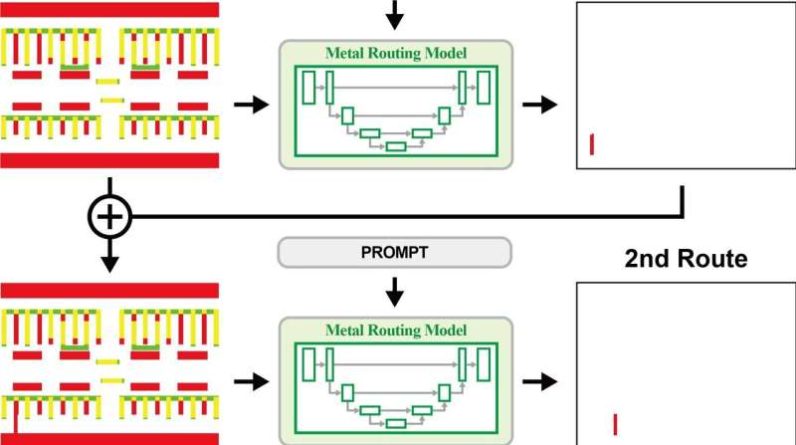
Authors:Tuhu Nugraha and Annanias Shinta D*
On June 26, 2024, the Institute for Policy Research and Advocacy (ELSAM) held a public discussion titled “Preparing Responsible and Trustworthy AI Regulation for Indonesia.” In this forum, ELSAM presented AI governance policy recommendations to the Ministry of Communication and Information Technology (Kemenkominfo), covering various aspects from definitions to sanctions. These recommendations are expected to form the basis for drafting a Ministerial Regulation (Permen) on AI, targeted for completion this year.
This discussion highlighted the urgent need for more comprehensive AI regulation in Indonesia. ELSAM Executive Director Wahyudi Djafar emphasized the importance of a concrete AI definition aligned with global AI regulations. Additionally, ELSAM proposed the establishment of a regulatory sandbox to facilitate the utilization of AI without stifling innovation. However, several key points need further attention in AI regulation, which are relevant not only to Indonesia but also to other developing countries.
Alongside Indonesia, Brazil is also actively developing comprehensive AI regulations. Although no specific law has been enacted yet, significant efforts are underway through Bill No. 2,338/2023, known as Brazil’s Proposed AI Regulation. This bill aims to establish a regulatory framework that promotes AI’s safe and responsible development and use. The proposed regulations define AI as computational systems with varying degrees of autonomy, a risk-based approach that classifies AI systems based on their potential risks, and governance and accountability requirements for risk management, transparency, and mechanisms. Furthermore, the bill ensures appropriate human oversight of AI systems, particularly for high-risk applications, protects human rights such as privacy and non-discrimination, promotes transparency and explainability of AI systems, and develops technical standards and conformity assessment procedures to ensure the safety and reliability of AI systems.
Indonesia and Brazil, as developing countries and part of the Global South, have taken the initiative to create AI regulations following the European Union, which has enacted the AI Act, currently serving as a benchmark for other countries, including developing nations. These steps demonstrate the commitment of developing countries to ensure that AI development can provide fair and inclusive benefits for all members of society.
Why Developing Countries Need to Regulate AI Immediately
Ethics and Social Protection
Good regulation can help developing countries ensure that AI technology is used ethically. The use of AI without adequate regulation can lead to various ethical and social issues, such as algorithmic bias, threatened data privacy, and non-transparent automated decisions. For example, AI used for facial recognition poses a risk of misusing the biometric data of citizens. Without clear regulation, this data can be abused, endangering individual privacy and security. In developing countries, the risk of privacy violations can be more severe due to weak data protection infrastructure and low public awareness of their rights. Therefore, AI regulations must include strict rules on data collection, storage, and use, as well as mechanisms to protect against privacy violations.
Beyond privacy issues, potential ethical and social violations in developing countries also include algorithmic bias. AI algorithms can reinforce existing societal biases if not carefully designed. In developing countries, where social and economic inequalities are often more pronounced, bias in AI algorithms can exacerbate discrimination against minority groups, the poor, or remote areas. For instance, AI-based recruitment systems might tend to overlook candidates from certain backgrounds if their training data does not adequately reflect diversity.
Advanced AI technology is often accessible only to wealthier segments of society or those living in urban areas, leaving rural and poor communities behind. This can widen the digital and social divide. Regulations must ensure that the benefits of AI technology are felt by all layers of society, including through special programs to support AI adoption in underdeveloped areas. Additionally, many developing countries rely on foreign technology and companies for their AI needs. Without proper regulation, this can lead to dominance by foreign companies that not only control the market but also the personal data of developing country citizens.
AI technology used by governments for security and surveillance purposes can be misused to spy on citizens without strong justification. In developing countries with weaker legal systems, this could lead to human rights violations. Regulations must establish clear boundaries on the use of AI surveillance technology by governments and ensure transparent accountability mechanisms. Developing countries also often lack sufficient expertise and infrastructure to manage and oversee AI implementation, leading to reliance on foreign consultants or projects that do not meet ethical standards. Regulations should include strategies for local capacity building, including training for the workforce and strengthening technology infrastructure. By addressing these potential ethical and social violations through good regulation, developing countries can ensure that AI technology development brings fair and inclusive benefits to all members of society.
Developing Local Technology Capacity
Regulations that support local innovation are crucial for developing countries. By encouraging domestic AI development, these countries can build their technological capacity. This means that they not only become consumers of foreign technology but also competitive producers in the global market. Concrete support for local innovators, such as tax incentives, funding, and technical assistance, can foster a robust AI ecosystem. This can also create new jobs and enhance national economic competitiveness. For instance, Indonesia has developed the “National Artificial Intelligence Strategy 2020-2045” to promote digital sovereignty and local AI development.
India has launched various initiatives to support AI development. The National Strategy for Artificial Intelligence (NSAI), launched in 2018, aims to leverage AI for inclusive growth and social development. Additionally, the National Programme on AI focuses on research, development, and adoption of AI across various sectors. India has also developed AIRAWAT, a cloud computing platform for AI that provides affordable computing and storage resources for researchers and startups. The Indian government also offers tax incentives for companies investing in AI research and development.
Similarly, Mexico has taken steps by launching the National Artificial Intelligence Strategy, which aims to position the country as a regional leader in AI development and use. Mexico also established the Artificial Intelligence Lab for cutting-edge AI research and development. The Mexican government collaborates with private companies through public-private partnerships to develop and implement AI solutions across various sectors.
With these initiatives, developing countries can ensure that they are not only consumers of foreign technology but also active producers in the global AI ecosystem. Regulations supporting local AI development can drive innovation, create jobs, and enhance economic competitiveness while ensuring that technological advancements bring inclusive and sustainable benefits to all society members.
Attracting Responsible Foreign Investment
Clear and transparent regulations can attract responsible foreign investment by providing legal certainty, reducing business risks, and ensuring compliance with ethical and safety standards. Investors are more confident in investing in countries with good AI regulations because it demonstrates the country’s commitment to the safe and ethical use of technology. Strict regulations also help investors avoid potential scandals or legal violations that could damage their reputations.
Responsible foreign investment not only brings financial capital but also knowledge and technology that can enhance local capacity through technology transfer and collaboration with local startups. Foreign companies often have advanced technology and expertise that can help developing countries improve their AI capabilities. This collaboration can generate innovations, create jobs, and strengthen the national technology ecosystem while promoting healthy competition and encouraging local companies to improve the quality of their products and services.
Countries like India and Brazil have shown how AI regulations can attract investment. India, with its National Strategy for Artificial Intelligence, has successfully attracted global companies to invest in its AI ecosystem through various initiatives such as tax incentives and infrastructure support. Similarly, Brazil, through its AI strategy, has created a conducive environment for innovation and investment by setting clear standards and supporting collaboration between the public and private sectors. With clear regulations and a commitment to ethical technology, developing countries can attract foreign investment that helps build local technological capacity, drive innovation, and create jobs.
Protecting Workers from Automation Impact
One of the biggest challenges faced by developing countries is the impact of automation on the workforce. AI has the potential to replace jobs currently performed by humans, which can lead to increased unemployment. AI regulations must include reskilling and upskilling programs to help workers adapt to technological changes. This is crucial to ensure that digital transformation not only benefits a few but also provides opportunities for all social strata to participate and gain benefits.
Companies using AI for automation must be responsible for equipping their employees with relevant new skills. Additionally, strong public-private partnerships are needed to ensure that affected workers can find new jobs in the digital economy. This aligns with the principles of Environmental, Social, and Governance (ESG), emphasizing the social and environmental responsibilities of companies. By prioritizing workforce skill development, companies not only enhance their competitiveness but also fulfil their social responsibilities, helping to create a more inclusive and sustainable society.
Social safety net policies must also be strengthened to support workers who lose their jobs due to automation. This includes providing unemployment benefits, access to job placement services, and training programs focused on future skills needs. These measures will not only help mitigate the negative impacts of automation but also support ESG principles by ensuring no social groups are left behind in the digital transformation process. Thus, developing countries can effectively manage the impact of AI automation while promoting broader social and economic sustainability.
Conclusion
Comprehensive AI regulations are crucial for developing countries to ensure that this technology is used ethically, supports local capacity development, attracts responsible foreign investment, and protects workers from automation impacts. Learning from public discussions in Indonesia, other developing countries can take similar steps to develop AI regulations that support digital sovereignty and overall societal well-being. With the right regulations, developing countries can leverage AI’s potential to accelerate their economic and social development while ensuring that technological advancements bring fair and inclusive benefits to all society members.
*Annanias Shinta D, Passionate professional with a strong background in research, communication, and business management. Experienced in collaborating with public and private companies, as well as NGOs, to drive positive change and create a better future.








